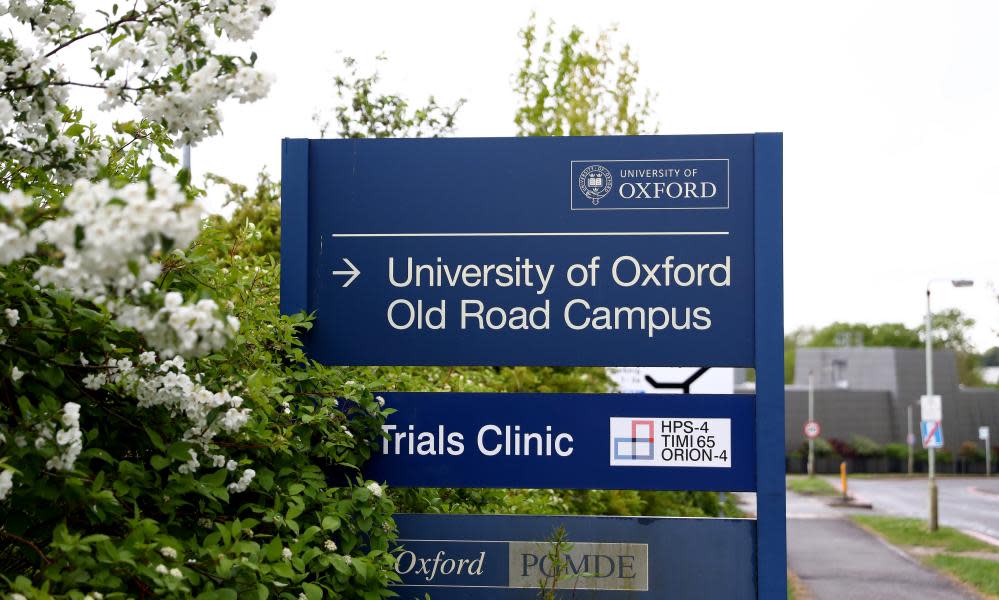Don't jump to conclusions about the Oxford vaccine trial suspension

The Oxford trial, one of the most advanced of the major global programmes to find a vaccine for Sars-CoV-2, has been paused, resulting in much speculation about why, and what this might mean for our efforts to control the pandemic. Is this a cause for concern? Unsettling as some of the headlines may seem, in my opinion we should not be unduly worried.
Vaccines are some of the most rigorously scrutinised of all healthcare products. In the UK, clinical trials of vaccines (and medicines) are overseen by the Medicines and Healthcare products Regulatory Agency (MHRA). The MHRA has strict processes governing the conduct of clinical trials, which are designed to ensure that the vaccines we develop are effective and safe.
The Oxford vaccine was tested in a small randomised controlled trial during which 543 participants from five UK centres received the vaccine (with another 534 receiving a control vaccine that is already in clinical use). The study participants were followed carefully over 28 days from the time the vaccine was administered, and according to their peer-reviewed publication of the study in the Lancet in July 2020, no one developed any serious adverse events during this trial. The success of the first trial led to the current much larger UK trial, in which up to 10,560 participants are randomised to receive either the Sars-CoV-2 vaccine or a control. The study team’s website states that by mid-July more than 8,000 people had been enrolled in to this trial. As well as trials in the UK, the vaccine is being tested in Brazil, South Africa, and the US.
Running any clinical trial is an enormous responsibility. As an investigator you want to do everything you can to ensure you do not cause avoidable harm to the people participating in your study – much time, effort, and worry goes into designing trials that will detect signs of a potential issue as early as possible. I suspect the weight of this responsibility will be felt even more heavily than usual by the Oxford vaccine team, who are undertaking their work in the full glare of the international spotlight.
Once investigators have designed a study, the trial protocol is independently scrutinised by the MHRA to ensure it agrees that the study design, including the safety monitoring plan, is appropriate. The clinical trial authorisation (CTA) needed to be allowed to start a clinical trial is not issued until the MHRA is satisfied.
From a safety point of view, the current Oxford vaccine trial appears to have worked just as we would all hope, with the study being suspended to allow independent investigation of an issue that has arisen in one of the more than 8,000 participants they have enrolled so far. As well as pausing the study to allow this independent investigation to happen, the investigators have been transparent with the public about what has happened. This is to be welcomed.
Pausing clinical trials to investigate serious adverse events is not uncommon. In many ways, it is a sign of the rigorousness of the safety monitoring regime, as opposed to there being a definite problem with the vaccine or medicine being tested. Once the investigation is completed, many studies go on to restart their recruitment and successfully finish their trial without further incident. While the pausing of the Oxford vaccine trial may seem significant, I suspect very few of the many other clinical trials that have been similarly paused over the years have had such massive publicity.
The pause is happening to allow an independent investigation into whether the adverse reaction was related to the vaccine. This has not yet happened, so speculation about what might have gone on and the possible consequences is just that – speculation. It is possible that one of the thousands of study participants may have developed a serious health issue that was not known about when they were enrolled into the trial, entirely by chance. We need to allow the regulatory authorities and the study team the time they need to determine whether there is in fact an issue relating to the vaccine.
Trust is a critical element of the global effort to tackle the Covid-19 pandemic – without it we will not make the progress we need towards bringing the crisis under control. Participants in clinical trials need to be able to trust that they will not be exposed to unnecessary and unacceptable risks during the research, and we all need to be able to trust that the medicines and vaccines that emerge from the various clinical development programmes are safe and effective. Key to both these elements is the existence of a thorough regulatory process, and this appears to be working well at the moment.
We need to be patient and let the review process take its course. In the meantime, there is something we can control: our reaction to the news. There is a risk that speculation about the pausing of the Oxford vaccine trial may mean that fewer people are willing to be vaccinated against Sars-CoV-2 when a vaccine does become available, even if the investigation concludes that this event was unrelated to the trial. Jumping to conclusions erodes the trust that is so vital to making progress against this disease – and could have very real consequences down the line.
• Dr Charlotte Summers is a lecturer in intensive care medicine at the University of Cambridge

 Yahoo News
Yahoo News 
